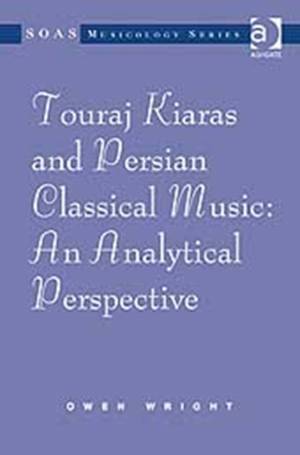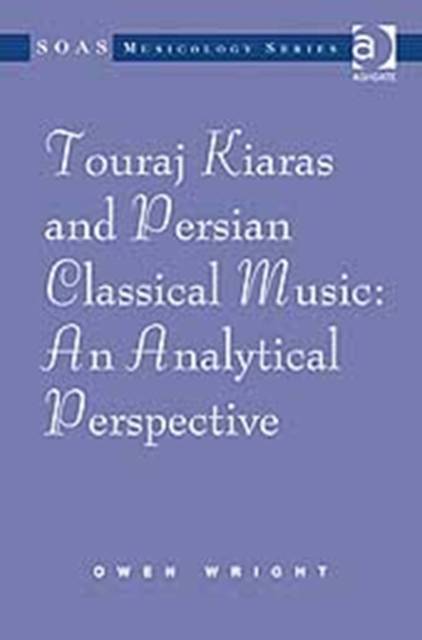
- Afhalen na 1 uur in een winkel met voorraad
- Gratis thuislevering in België vanaf € 30
- Ruim aanbod met 7 miljoen producten
- Afhalen na 1 uur in een winkel met voorraad
- Gratis thuislevering in België vanaf € 30
- Ruim aanbod met 7 miljoen producten
Zoeken
Touraj Kiaras and Persian Classical Music: An Analytical Perspective
Owen Wright
€ 182,45
+ 364 punten
Omschrijving
In this book Owen Wright analyses a single recording of classical Persian music made by Touraj Kiaras, a distinguished singer, accompanied by four noted instrumentalists. The format of the recording is typical of a public concert performance, and thus includes instrumental compositions as well as a central exploration of vocal repertoire and technique. The analysis identifies salient structural features, whether of the individual components or of the whole, in a way accessible to the western reader, but it also takes account of the analytical metalanguage used in Persian scholarship, and includes consideration of the relationship between music and poetry. It is important to note that it is also guided by the perceptions of the performer, whose input and responses to questions have significantly influenced the enterprise. To avoid the dryly impersonal, the analysis is also framed by an introduction which combines a biographical sketch of Touraj Kiaras with a survey of the twentieth-century evolution of Persian classical music and of the position of the vocal repertoire within it, and by an epilogue which examines further the ideological basis of prevalent attitudes to music, and seeks to explore the validity of the analytical enterprise within this context.
Specificaties
Betrokkenen
- Auteur(s):
- Uitgeverij:
Inhoud
- Aantal bladzijden:
- 148
- Taal:
- Engels
- Reeks:
Eigenschappen
- Productcode (EAN):
- 9780754663287
- Verschijningsdatum:
- 26/08/2009
- Uitvoering:
- Hardcover
- Formaat:
- Genaaid
- Afmetingen:
- 156 mm x 233 mm
- Gewicht:
- 452 g

Alleen bij Standaard Boekhandel
+ 364 punten op je klantenkaart van Standaard Boekhandel
Beoordelingen
We publiceren alleen reviews die voldoen aan de voorwaarden voor reviews. Bekijk onze voorwaarden voor reviews.











